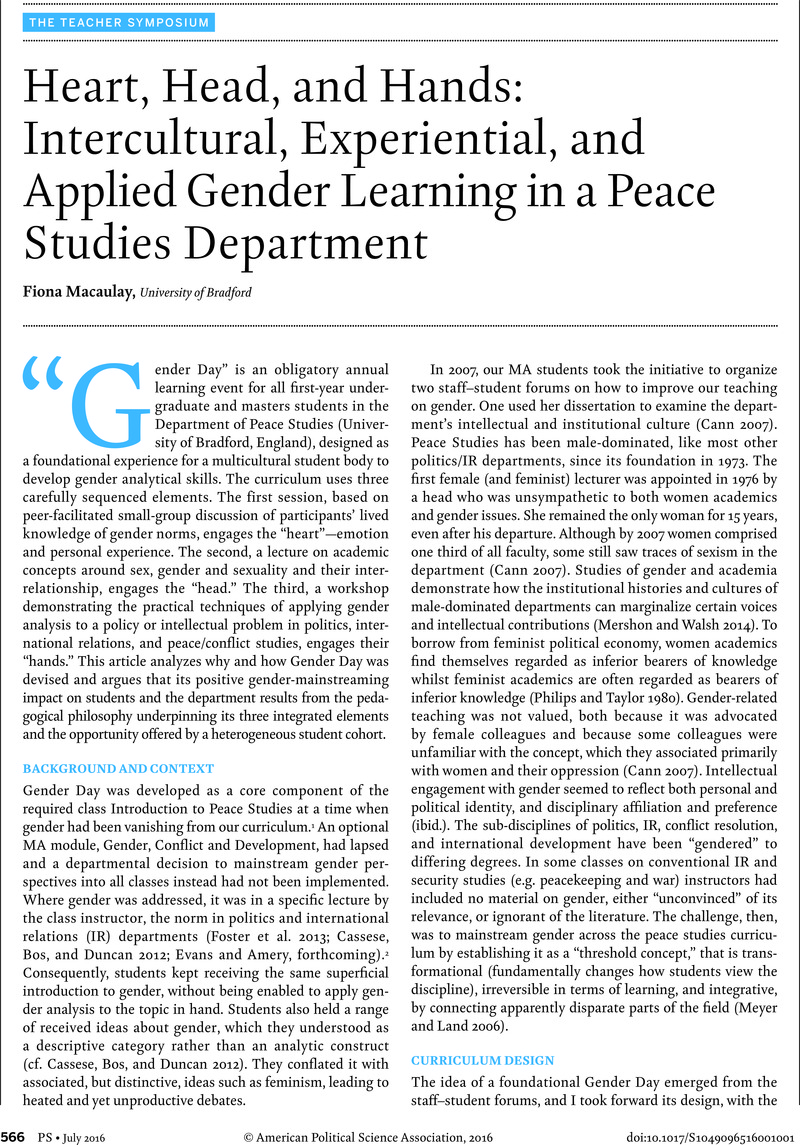Crossref Citations
This article has been cited by the following publications. This list is generated based on data provided by Crossref.
Ackerly, Brooke
and
Mügge, Liza
2016.
Introduction.
Political Science and Politics,
Vol. 49,
Issue. 3,
p.
541.
Nyenhuis, Robert
and
Gellers, Joshua C.
2023.
Experiential Learning Exercises’ Effects on Students’ Attitudes Toward the Global Poor.
Journal of Political Science Education,
Vol. 19,
Issue. 1,
p.
119.



